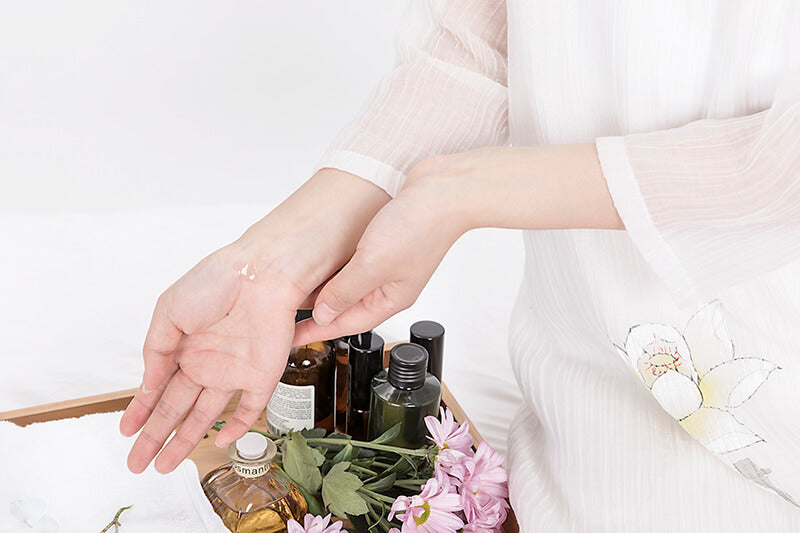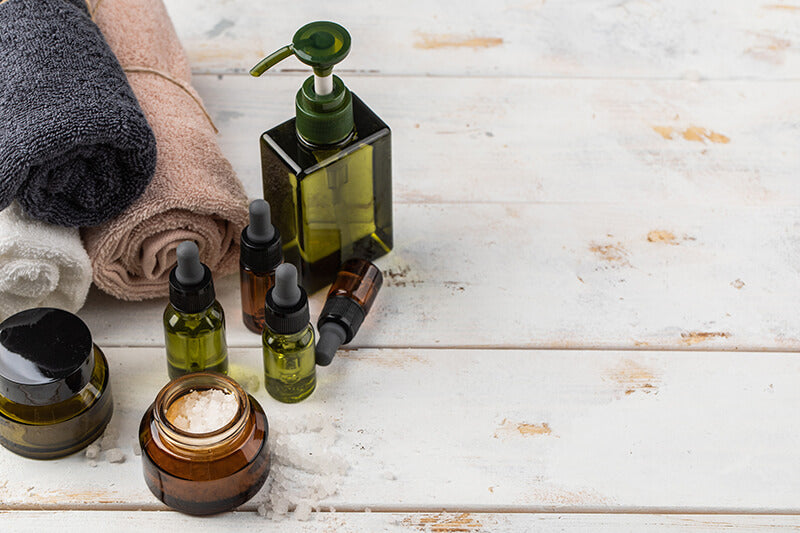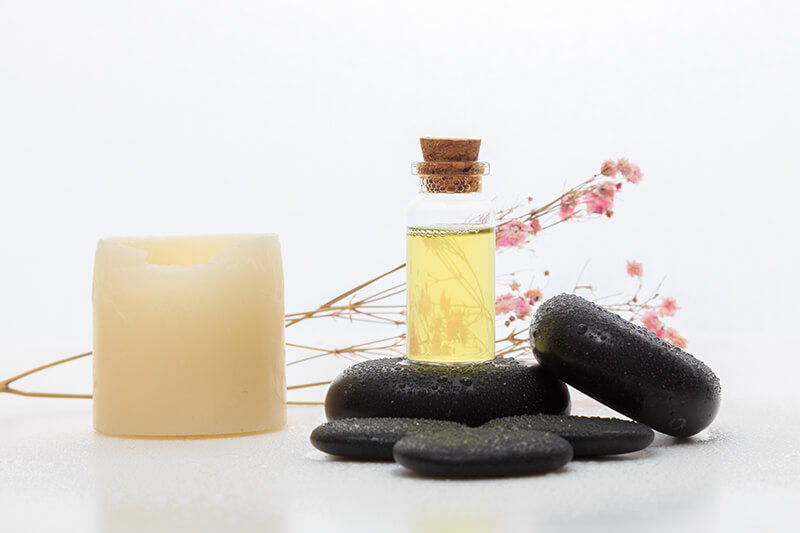Your Cart is Empty
HYDROSOL Fans! First order 15% OFF. Use code [HD15] Free Shipping Worldwide!

In terms of composition, essential oils are definitely not lipid.
The chemical composition of essential oils is very complex, not every ingredient has been discovered until now.

Generally speaking, the most common essential oils include olefins and their derivatives (mainly pinenes, esters, and acetaldehyde), Ketones, ethanol, benzene, and oxides, etc.), play a role in immunity, reproduction, and protection of the plant itself, so it will also affect the human endocrine and immune system.
There is a lot of market information that will eagerly warn readers: "Except for tea tree and lavender essential oils, don't drop essential oils directly on the skin!" In fact, this is an oversimplified suggestion.
The irritation of pure essential oils varies according to different types of essential oils.

For example, the cinnamon essential oil has high irritation, while the lavender essential oil has low irritation.
The other is different according to the shelf life of essential oils.
Such as if the citrus essential oil placed more than one year later, it will become more irritating due to oxidation.
Third, it varies according to the individual's skin sensitivity and skin conditions.
Due to the many variables mentioned above, more background knowledge is needed to judge when using them. Therefore, in order to avoid problems when people use them on their own, it is often heard in the market that pure essential oils cannot be used directly. In fact, most pure essential oils are safe to use directly on the skin as long as they avoid the mucous membranes and face.
Even so, pure essential oils still have a certain irritation. Don't take such usage as the norm to avoid excessive drying of the skin surface. For most treatments, as long as the essential oils in diluted and vegetable oils are applied and applied, the best effect can be achieved.

Although the scent of essential oils is acceptable to everyone and can help our body, mind to relax, we must pay special attention to the related taboos of essential oils before using essential oils.
The use of essential oils is based on the principle of the lowest amount. Do not use too much essential oil at a time, just use the smallest amount that can achieve the effect.
If you have a sensitive body or skin, it is recommended to drop the essential oil on your wrist for an essential oil sensitivity test before using it. If itching, redness, or other uncomfortable reactions occur, it means that the essential oil is not suitable for your physique.
If you are pregnant, it is recommended not to use essential oils in the first three months of pregnancy. After three months, when your body is stable, you can use mild vitamin essential oils, such as orange and Lemon, Grapefruit, etc., and also remember to avoid essential oils such as geranium, jasmine, and mint.
Comments will be approved before showing up.